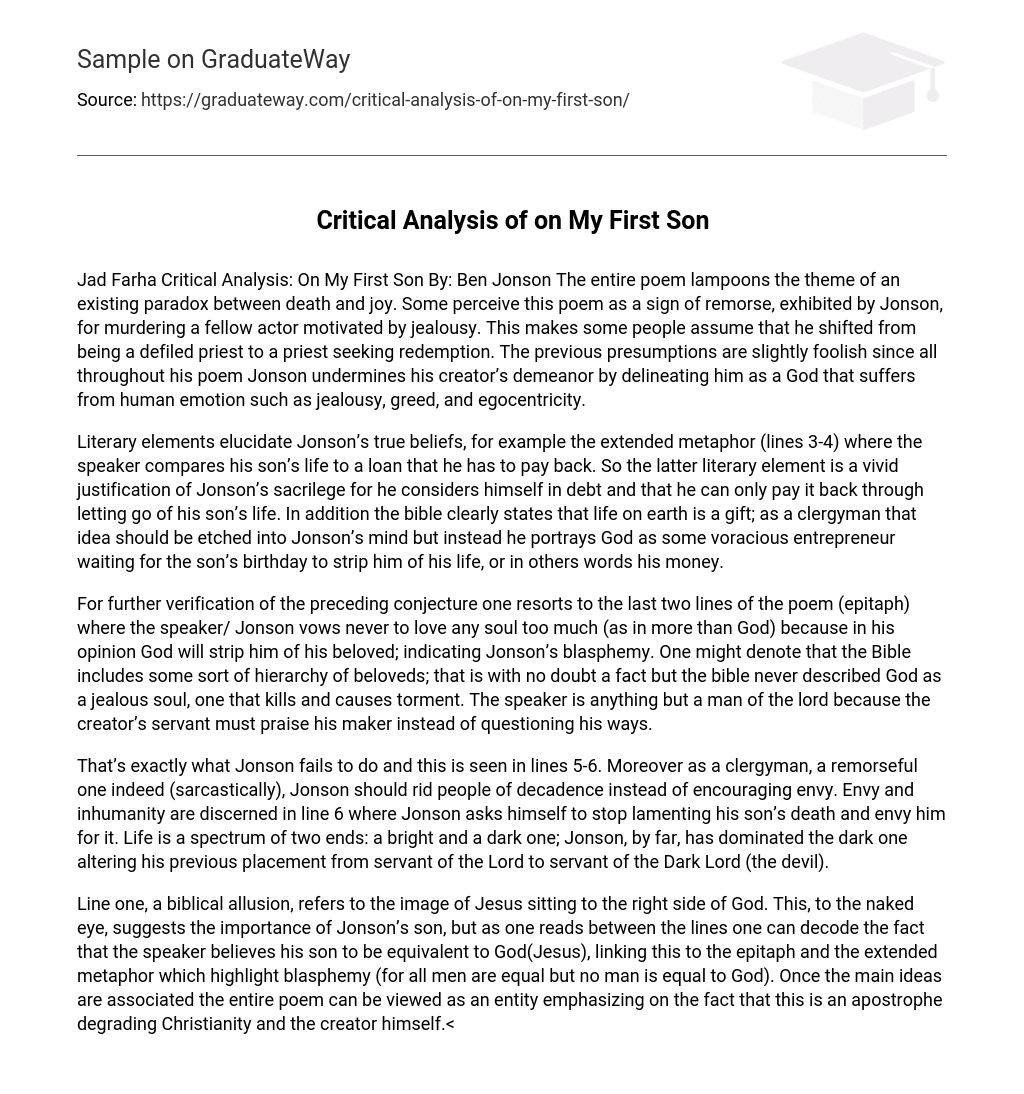Jad Farha Critical Analysis: On My First Son By: Ben Jonson The entire poem lampoons the theme of an existing paradox between death and joy. Some perceive this poem as a sign of remorse, exhibited by Jonson, for murdering a fellow actor motivated by jealousy. This makes some people assume that he shifted from being a defiled priest to a priest seeking redemption. The previous presumptions are slightly foolish since all throughout his poem Jonson undermines his creator’s demeanor by delineating him as a God that suffers from human emotion such as jealousy, greed, and egocentricity.
Literary elements elucidate Jonson’s true beliefs, for example the extended metaphor (lines 3-4) where the speaker compares his son’s life to a loan that he has to pay back. So the latter literary element is a vivid justification of Jonson’s sacrilege for he considers himself in debt and that he can only pay it back through letting go of his son’s life. In addition the bible clearly states that life on earth is a gift; as a clergyman that idea should be etched into Jonson’s mind but instead he portrays God as some voracious entrepreneur waiting for the son’s birthday to strip him of his life, or in others words his money.
For further verification of the preceding conjecture one resorts to the last two lines of the poem (epitaph) where the speaker/ Jonson vows never to love any soul too much (as in more than God) because in his opinion God will strip him of his beloved; indicating Jonson’s blasphemy. One might denote that the Bible includes some sort of hierarchy of beloveds; that is with no doubt a fact but the bible never described God as a jealous soul, one that kills and causes torment. The speaker is anything but a man of the lord because the creator’s servant must praise his maker instead of questioning his ways.
That’s exactly what Jonson fails to do and this is seen in lines 5-6. Moreover as a clergyman, a remorseful one indeed (sarcastically), Jonson should rid people of decadence instead of encouraging envy. Envy and inhumanity are discerned in line 6 where Jonson asks himself to stop lamenting his son’s death and envy him for it. Life is a spectrum of two ends: a bright and a dark one; Jonson, by far, has dominated the dark one altering his previous placement from servant of the Lord to servant of the Dark Lord (the devil).
Line one, a biblical allusion, refers to the image of Jesus sitting to the right side of God. This, to the naked eye, suggests the importance of Jonson’s son, but as one reads between the lines one can decode the fact that the speaker believes his son to be equivalent to God(Jesus), linking this to the epitaph and the extended metaphor which highlight blasphemy (for all men are equal but no man is equal to God). Once the main ideas are associated the entire poem can be viewed as an entity emphasizing on the fact that this is an apostrophe degrading Christianity and the creator himself.





